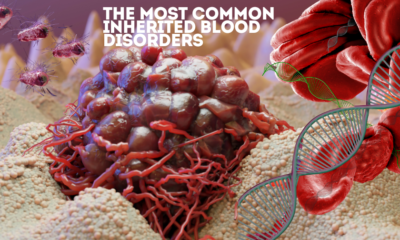Parenting
Childhood Obesity: Prevention Strategies for Parents

Childhood obesity has emerged as one of the most significant public health challenges of the 21st century, affecting children worldwide. It is a complex issue that poses severe physical, emotional, and psychological consequences for children and their families. Obesity in childhood not only leads to health problems such as diabetes, cardiovascular diseases, and metabolic disorders but also increases the likelihood of obesity in adulthood, perpetuating a lifelong battle with weight management. However, despite the magnitude of this issue, it is preventable through informed strategies that begin at home. Parents, as primary caregivers, play a crucial role in shaping their children’s eating and lifestyle habits from an early age.
This article serves as an in-depth exploration of childhood obesity, examining its causes, consequences, and, most importantly, prevention strategies that parents can implement to help their children maintain a healthy weight and lead healthier lives.
Understanding Childhood Obesity
What is Childhood Obesity?
Childhood obesity is a medical condition in which a child is significantly overweight in age and height, measured using the Body Mass Index (BMI). A child is considered obese if their BMI is at or above the 95th percentile for children of the same age and sex, as outlined by the Centers for Disease Control and Prevention (CDC).
Global Prevalence and Trends
Over the past few decades, childhood obesity has reached alarming levels globally. The World Health Organization (WHO) reports that, in 2020, over 340 million children and adolescents aged 5-19 were classified as overweight or obese. The rise in childhood obesity is attributed to various factors, including increasing sedentary behavior, poor dietary habits, and the growing influence of fast food culture.
While childhood obesity is a concern in high-income countries like the United States and the United Kingdom, it has also become a growing issue in low- and middle-income countries, where rapid urbanization and lifestyle changes have led to shifts in dietary habits. Childhood obesity, therefore, is a global phenomenon that requires urgent attention.
Causes of Childhood Obesity
Childhood obesity results from a complex interplay of various factors, including genetics, environmental influences, and behavioral patterns. Understanding the root causes is essential for devising effective prevention strategies.
1) Poor Diet and Nutritional Habits
One of the leading causes of childhood obesity is an unhealthy diet, characterized by the consumption of energy-dense, nutrient-poor foods. Processed foods high in sugar, fats, and refined carbohydrates are easily accessible and often marketed directly to children. Sugary beverages, fast food, and snacks have become dietary staples, contributing to excessive caloric intake.
Parents, sometimes unintentionally, encourage poor eating habits by providing children with these foods due to convenience, time constraints, or the misconception that they are suitable for children’s taste preferences. Additionally, the portion sizes offered to children today are often much larger than recommended, contributing to overeating.
2) Lack of Physical Activity
Modern lifestyles have led to a decline in physical activity among children. With the advent of technology, children are increasingly engaging in sedentary activities such as watching television, playing video games, and spending time on smartphones and tablets. The reduction in outdoor play, sports, and physical exercise has significantly contributed to weight gain.
Many children today do not meet the WHO’s recommendation of at least 60 minutes of moderate-to-vigorous physical activity per day. The lack of physical activity, combined with high-calorie diets, creates an imbalance between energy intake and expenditure, leading to weight gain.
3) Genetic and Biological Factors
While environmental and behavioral factors are primary contributors to childhood obesity, genetics also play a role. Children with a family history of obesity are at a higher risk of becoming obese themselves. Genetic factors can influence how a child’s body stores fat, their metabolic rate, and their appetite regulation.
However, it is essential to recognize that genetics alone do not determine a child’s weight. Lifestyle choices and environmental influences are powerful determinants that can mitigate or exacerbate the genetic predisposition to obesity.
4) Psychological and Emotional Factors
Emotional well-being significantly influences a child’s eating habits and physical activity levels. Stress, anxiety, depression, and low self-esteem can lead children to engage in unhealthy eating behaviors, such as overeating or binge eating. Emotional eating is often a coping mechanism for dealing with negative emotions, and this behavior can contribute to weight gain.
Moreover, children who experience bullying or social isolation due to their weight may withdraw from physical activities and become more sedentary, further exacerbating their obesity. A child’s emotional health is, therefore, intertwined with their physical well-being, and addressing psychological factors is critical to preventing obesity.
5) Environmental and Socioeconomic Factors
The environment in which a child grows up plays a vital role in shaping their eating and activity habits. Urban environments with limited access to parks or recreational facilities may reduce opportunities for children to engage in physical activities. Additionally, food deserts areas where healthy, affordable food options are scarce may limit families’ ability to provide nutritious meals.
Socioeconomic status also affects childhood obesity rates. Families with lower incomes often face barriers to accessing healthy food options due to the higher cost of fresh fruits, vegetables, and lean proteins compared to processed foods. Moreover, busy work schedules and limited access to health education can make it difficult for parents to prioritize nutrition and physical activity for their children.
Consequences of Childhood Obesity
Childhood obesity has far-reaching consequences that affect a child’s physical, mental, and emotional health. These consequences can persist into adulthood, leading to a range of chronic diseases and psychological issues.
1) Physical Health Complications
Children who are obese are at a significantly higher risk of developing health problems that were once considered adult-only conditions. These include:
- Type 2 Diabetes: Obesity is a leading risk factor for the development of type 2 diabetes in children. Excess body fat impairs the body’s ability to use insulin effectively, leading to high blood sugar levels.
- Cardiovascular Diseases: Childhood obesity can lead to high blood pressure, high cholesterol, and an increased risk of developing heart disease later in life.
- Respiratory Issues: Obese children are more likely to develop asthma, sleep apnea, and other respiratory problems due to the excess weight on their respiratory system.
- Joint and Musculoskeletal Problems: Excess weight puts additional strain on bones and joints, leading to conditions such as osteoarthritis and orthopedic issues.
- Non-Alcoholic Fatty Liver Disease (NAFLD): Obesity can lead to the accumulation of fat in the liver, causing inflammation and, in severe cases, liver damage.
2) Psychological and Emotional Impact
Obese children often face social stigma, bullying, and discrimination, which can severely impact their self-esteem and mental health. They may experience anxiety, depression, and feelings of isolation. Furthermore, societal pressures and negative body image perceptions can contribute to the development of eating disorders, such as binge eating or anorexia nervosa.
The emotional toll of obesity can also affect academic performance and social interactions, limiting a child’s ability to engage in activities and develop healthy relationships.
3) Long-Term Impact
Childhood obesity significantly increases the likelihood of obesity in adulthood. Adults who were obese as children are more likely to suffer from chronic diseases such as diabetes, cardiovascular diseases, and certain types of cancer. The long-term impact on health, combined with the psychological and emotional toll, underscores the importance of addressing childhood obesity early in life.
Prevention Strategies for Parents
Preventing childhood obesity requires a multi-faceted approach that involves fostering healthy eating habits, encouraging physical activity, and promoting emotional well-being. As the primary caregivers, parents play a pivotal role in creating an environment that supports a healthy lifestyle for their children.
Here are key strategies that parents can implement to prevent childhood obesity:
1) Promote Healthy Eating Habits
Balanced Diet: Parents should prioritize providing their children with a balanced diet that includes a variety of fruits, vegetables, whole grains, lean proteins, and healthy fats. Ensuring that meals are rich in essential nutrients helps children develop healthy eating habits from an early age.
Portion Control: It is essential to teach children about portion sizes and the importance of listening to their hunger and fullness cues. Parents can prevent overeating by serving appropriately sized portions and avoiding the use of food as a reward or punishment.
Limit Sugary and Processed Foods: Reducing the consumption of sugary beverages, snacks, and processed foods is critical in preventing excessive calorie intake. Encouraging water or milk instead of soda and fruit juice can significantly reduce sugar consumption.
Family Meals: Eating meals together as a family allows parents to model healthy eating behaviors and create a positive mealtime environment. Family meals also provide an opportunity for parents to teach children about the importance of nutrition and making healthy food choices.
2) Encourage Regular Physical Activity
Daily Exercise: Parents should encourage their children to engage in at least 60 minutes of physical activity each day. This can include activities such as walking, biking, swimming, or playing sports. Physical activity should be fun and enjoyable, allowing children to develop a positive attitude toward exercise.
Limit Screen Time: Reducing the amount of time children spend on sedentary activities such as watching television or playing video games is crucial in promoting physical activity. The American Academy of Pediatrics recommends limiting screen time to no more than two hours per day for children over the age of two.
Active Play: Creating opportunities for active play, such as visiting parks, organizing family hikes, or playing outdoor games, helps children stay physically active and develop a love for movement.
3) Foster a Positive Relationship with Food
Avoid Food as a Reward: Using food as a reward or punishment can create an unhealthy relationship with eating. Instead, parents can use non-food rewards, such as praise, stickers, or extra playtime, to encourage positive behavior.
Mindful Eating: Teaching children to eat mindfully focusing on the taste, texture, and enjoyment of food can help them become more aware of their hunger and fullness cues. This can prevent overeating and promote a healthier relationship with food.
Involve Children in Meal Preparation: Involving children in meal planning and preparation can help them develop a greater appreciation for healthy food. It also provides an opportunity for parents to educate children about nutrition and the importance of making balanced food choices.
4) Support Emotional Well-being
Address Emotional Eating: Parents should be mindful of their child’s emotional well-being and how it relates to their eating habits. If a child is using food as a way to cope with stress or negative emotions, parents should offer support and encourage healthier coping mechanisms, such as talking about feelings, engaging in creative activities, or practicing mindfulness.
Promote Body Positivity: It is essential for parents to promote a positive body image and encourage self-acceptance. Avoid making negative comments about weight or appearance, and instead, focus on the importance of health and well-being.
Provide Emotional Support: Parents should create a supportive and nurturing environment where children feel comfortable discussing their emotions and challenges. Emotional support plays a vital role in helping children develop resilience and self-confidence.
5) Create a Healthy Home Environment
Stock the Home with Healthy Foods: Parents can create a healthy home environment by stocking the pantry and refrigerator with nutritious food options. Having healthy snacks readily available, such as fruits, vegetables, yogurt, and nuts, encourages children to make better food choices.
Be a Role Model: Children often mimic their parents’ behaviors, so it is crucial for parents to lead by example. Parents who prioritize their own health by eating nutritious foods, staying physically active, and practicing mindfulness are more likely to inspire their children to adopt similar habits.
Encourage Healthy Sleep Habits: Adequate sleep is essential for maintaining a healthy weight. Research has shown that children who do not get enough sleep are at a higher risk of becoming obese. Parents should establish consistent bedtime routines and ensure that their children are getting the recommended amount of sleep based on their age.
Conclusion
Childhood obesity is a complex and multifaceted issue that requires a collaborative effort between parents, healthcare providers, schools, and communities. Parents, as primary caregivers, have a profound influence on their children’s health and well-being. By promoting healthy eating habits, encouraging physical activity, supporting emotional well-being, and creating a nurturing home environment, parents can play a pivotal role in preventing childhood obesity.
Preventing childhood obesity is not just about reducing the number on the scale; it is about instilling lifelong habits that promote health, happiness, and confidence. By taking proactive steps, parents can empower their children to lead healthy, active lives, free from the physical and emotional burdens of obesity. The path to prevention begins at home, and the time to act is now.

-

 Press Release7 days ago
Press Release7 days agoNura Labs Files Revolutionary Patent: AI-Powered Wallet Solves the $180 Billion Crypto Staking Complexity Crisis
-

 Press Release5 days ago
Press Release5 days agoGlobal Compound Feeds and Additives Industry Report: Market Expansion and Competitive Insights to 2035
-

 Technology5 days ago
Technology5 days agoWhat to Know Before Switching Cell Phone Network Services in 2025
-

 Press Release3 days ago
Press Release3 days agoCrypto WINNAZ Launches First On-Chain Yield Engine for Meme Coins, Enabling 20x–300x Returns
-

 Press Release13 hours ago
Press Release13 hours agoBellarium ($BEL) Price Prediction: Could It Hit $5 by 2026?
-

 Press Release12 hours ago
Press Release12 hours agoWhy Alaxio (ALX) Is a Top Pick for Smart Crypto Investors






























